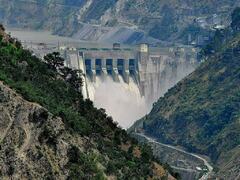Indus Waters Treaty Likely to Endure Despite Tensions
ISLAMABAD: It is improbable that India will unilaterally revoke the Indus Waters Treaty (IWT), facilitated by the World Bank (WB), despite current bilateral tensions.
In response to unconfirmed reports suggesting that New Delhi might unilaterally terminate the Indus Waters Treaty, informed sources clarified that such claims are speculative. They emphasized that neither Pakistan nor India possesses the authority to dissolve the agreement, which was brokered by the World Bank.
The Indus Waters Treaty, an accord between India and Pakistan, was structured and mediated by the WB to govern the allocation of water resources from the Indus River and its tributaries. The treaty was formalized in Karachi on September 19, 1960, with signatures from then Indian Prime Minister Jawaharlal Nehru and then Pakistani President Field Marshal Ayub Khan.
The Treaty allocates control of the waters from the three “Eastern Rivers” – the Beas, Ravi, and Sutlej, situated in India and possessing an average annual flow of 41 billion cubic meters (33 million acre-feet) – to India. Conversely, Pakistan is granted control over the waters from the three “Western Rivers” – the Indus, Chenab, and Jhelum, also located in India, which have an average annual flow of 99 billion cubic meters.
India’s allocation constitutes approximately 30% of the total water carried by the Indus Rivers System within India, while Pakistan receives the remaining 70%.



Comments (0)
No comments yet. Be the first to comment!
Leave a Comment